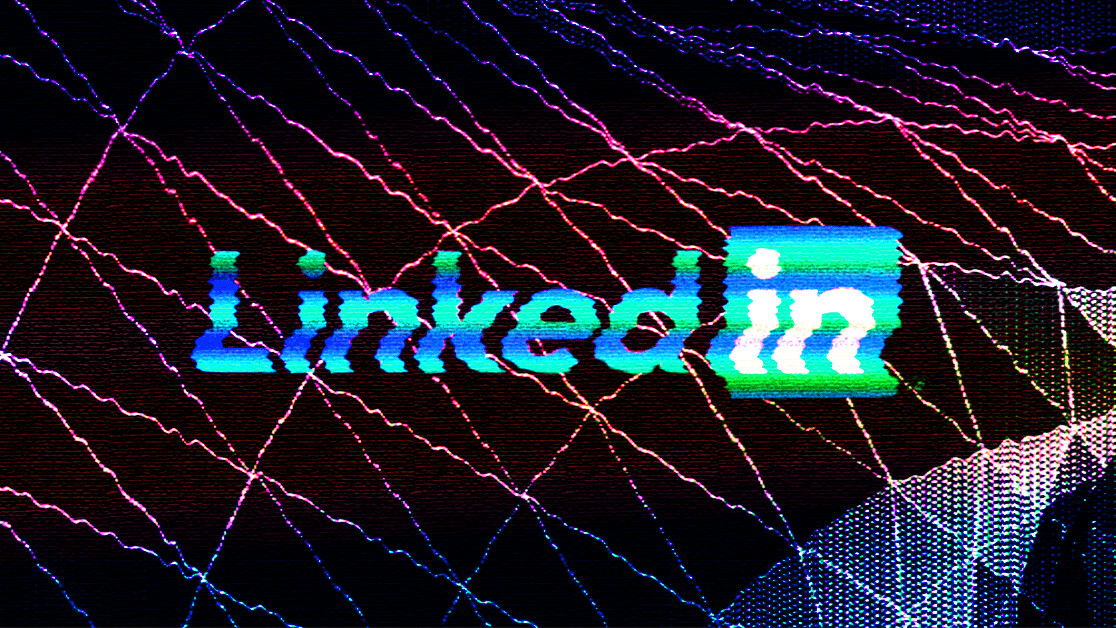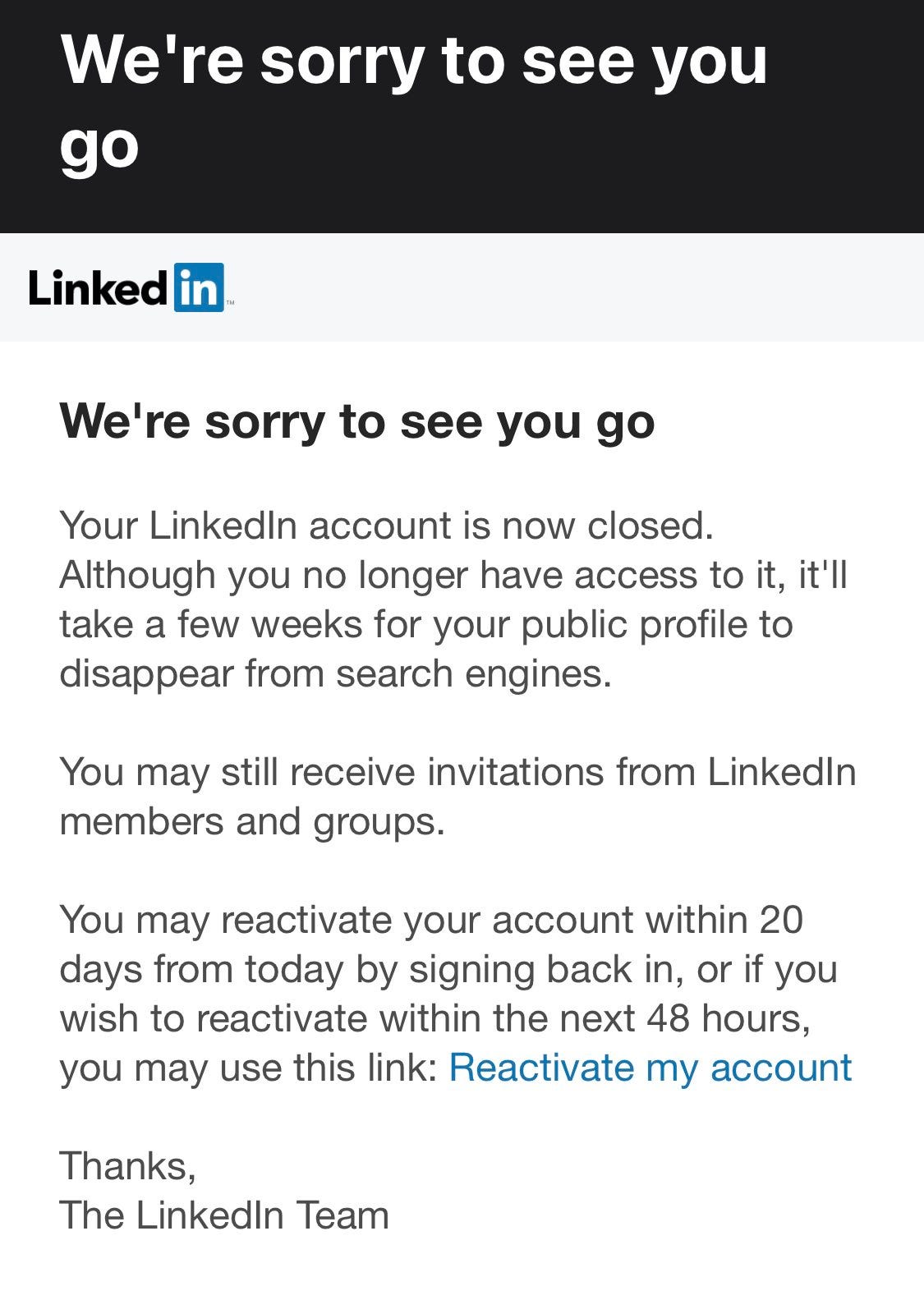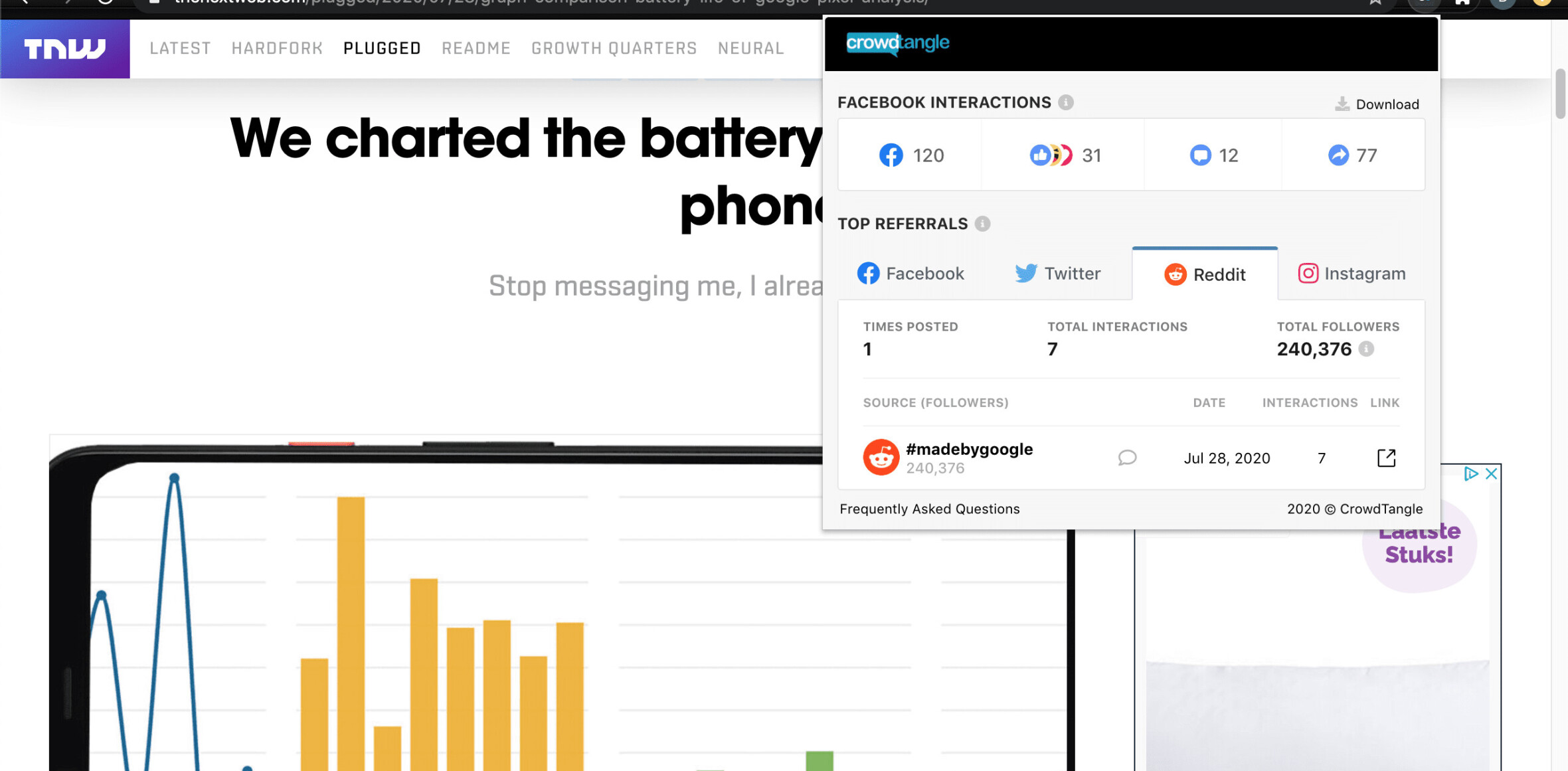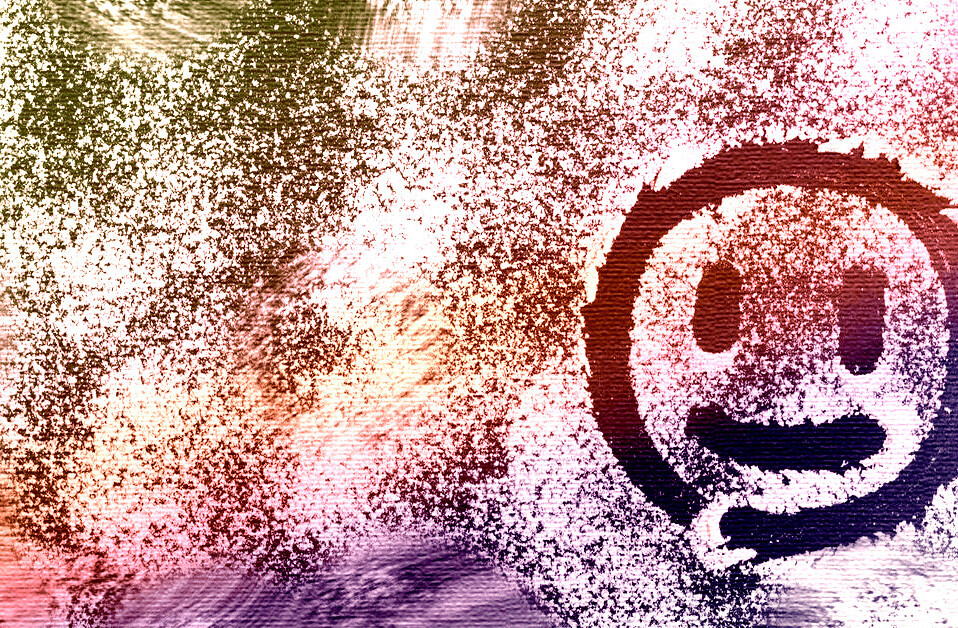
I deleted LinkedIn this week.
I am enjoying a refreshing break from SEO and VA business development managers who want to connect in the name of synergy. From work/life coaches who “just want to ask me one question.” And from copy-paste content written by wannabe rockstar recruiters about the various times they either turned someone down or gave them a job on the spot.
I’ve been focusing on reducing the channels and interactions that I invest my time in.

Only being on platforms and creating content that I enjoy; that support my values of authenticity and reject notions of growth hacking bulls**t.
When was the last time LinkedIn gave you value?
It was my birthday the other day. I am slowly hacking my way into the jungle of my 30s, with a machete of tea, scones, and Castle reruns.
I spent the day receiving over 500 (!) birthday greetings from LinkedIn contacts, whose names and faces I didn’t even recognize, who had clicked on a notification prompt. Some of those birthday greetings were the only interaction I had ever had with these contacts.
[Read: ]
When you care about the value of one-to-one, individual human interactions, it’s almost distressing to see communication reduced to such an impersonal level. I have no need for that.
I’m not alone in that. John Biggs at TechCrunch put it best:
“I hate LinkedIn. I open it out of habit and accept everyone who adds me because I don’t know why I wouldn’t. There is no clear benefit to the social network. I’ve never met a recruiter on there. I’ve never gotten a job. The only messages I get are spam from offshore dev teams and crypto announcements. It’s like Facebook without the benefit of maybe seeing a picture of someone’s award-winning chili or dog.“
I know some people find jobs, opportunities, and meaningful connections on the platform. I am not one of them. Even if I were, I don’t think I’d enjoy it. At this point, it would feel almost like telling my grandkids that I met my husband on Grindr. LinkedIn is a wildly disingenuous and inauthentic platform. It’s filled with people who are seemingly unable to reconcile the reality of their lives with the sheen and facade of curation. People who either believe or want to believe that their job announcements have the same weight as a Beyoncé album drop.
It’s a sales hellscape. It’s like being stuck in a depressing Willy Loman virtual experience
I know a thing or two about sales. I started my own business; it goes with the territory. My experience has taught me one thing. The only way to effectively sell to someone is to build an actual relationship with them, help them as much as you possibly can without having an agenda, give before you ever ask for anything, and show them that you have something to offer, without hammering on their door offering it.
That is the antithesis of LinkedIn. Where people send you off-brand and clumsy sales pitches at best — or at worst, scrape your details for scalable and utterly useless outbound campaigns. They send pitch decks in the same breath that they introduce themselves for the first time. They want you to buy with no reason why.
LinkedIn feels less like a platform for selling, and more like a platform for being sold to. A LinkedIn message is the 2020s equivalent of a cold sales call. You dread it. You hate it. You just don’t want to deal with it.
Apart from giving away your data in exchange for feeling like a sales prospect, LinkedIn doesn’t even work as a content platform
The numbers are often quite atrocious. The organic reach just isn’t there. A LinkedIn blog post is seen by a fraction of your 5,000+ connections. What’s the point in even publishing? A LinkedIn text post has more chance of being seen; but you’re competing with Bullshit, and in doing so, you’re dragging your content down to its level.
The content that works on LinkedIn has zero authenticity.
Alex Kantrowitz and Ryan Mac from Buzzfeed identified one of the most insidious forms:
“If you spend enough time on LinkedIn, you’ll surely come across a broem, which has become the go-to post format for marketers, social media mavens, and “growth evangelists.” They draw you in with two semi-inspiring personal lines you might find on the front cover of a self-help book. Click the “… see more” hyperlink and a string of additional lines unfurls — each one a paragraph — that read like employee handbook haikus or an E.E. Cummings motivational poster. Sometimes there are emojis. Often, there is some closing fortune cookie-esque takeaway about “changing your mindset” or a rhetorical question asking, “What have YOU done today?”
Frankly, I can do without.
I would rather focus my attention on platforms where I know people have come to genuinely research, interact, learn and consume. Quora. Angel List. Dribble. Medium. Substack. And yes, Twitter. And I would rather remove the false sense of accomplishment we get from engaging on LinkedIn, where we log into a landfill of utter shit several times a day and feel like we’ve done our bit of networking and growing, with no evidence to support that belief.
It’s not as scary as it seems.
It’s the pursuit of less, in honor of more. On platforms where the focus is on engaging, promoting, and climbing a social performance ladder, the only numbers that matter are the ones that measure popularity. Clicks. Likes. Shares. Comments. Any of which could have value in isolation, but in a co-dependent relationship with attention and its resulting ego boost, become little more than vanity metrics.
And vanity metrics are pointless.
I’d rather have 5 people reading my writing who actually give a shit in a meaningful way, than 5,000 who couldn’t care less.
So, no. I don’t want to add you to my professional network on LinkedIn.
If that’s your goal, I’d rather add you to a blocklist.
This article was originally published by Joan Westenberg on Medium.
Get the TNW newsletter
Get the most important tech news in your inbox each week.




